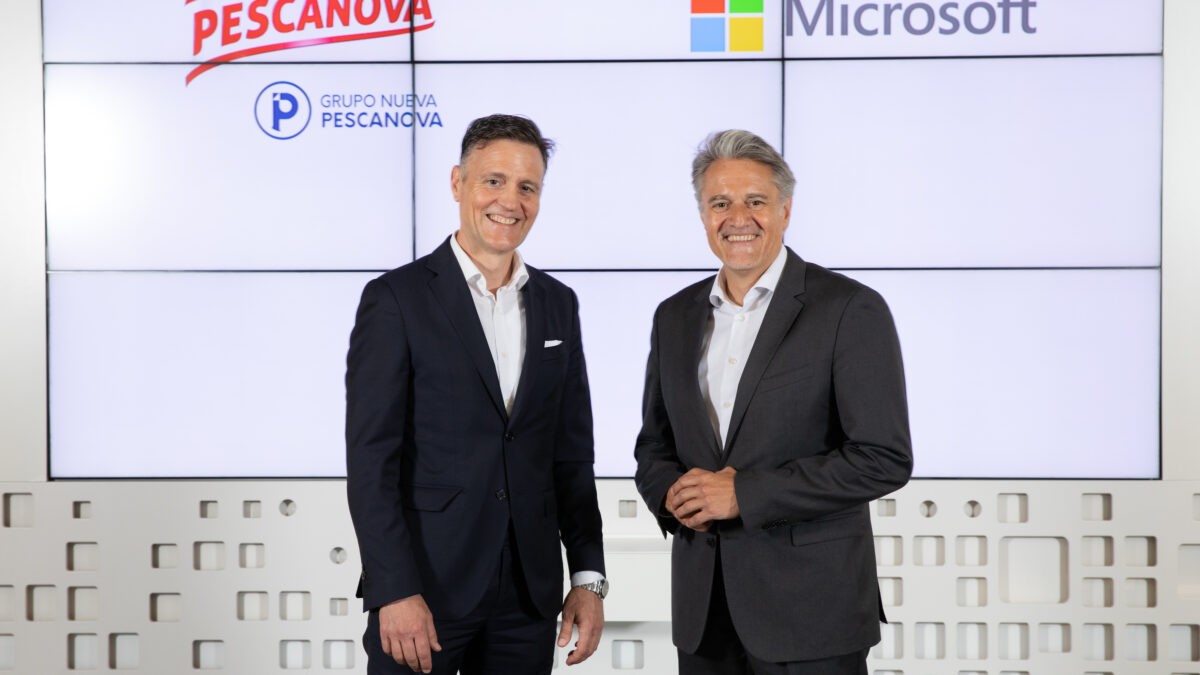Article taken from: Nueva Pescanova
•The two companies are extending their agreement to continue advancing the digitization of farming through the use of Artificial Intelligence, Internet of Things and Big Data technologies
•Thanks to this joint collaboration, the world’s first smart shrimp farm has been launched
The Nueva Pescanova Group and Microsoft have renewed the partnership initiated in 2021 to continue advancing digitization of aqua farms through the use of Artificial Intelligence, Internet of Things and Big Data technologies. The joint collaboration developed over the last two years has resulted in the creation of the world’s first intelligent aquaculture farm for Vannamei shrimp (Smart Farm), and with this new agreement, both companies will continue to promote the efficiency and sustainability of these farms.The extension of the partnership was formalized today during a ceremony held at Microsoft’s offices in Spain, attended by Alberto Granados, President of Microsoft España, José María Benavent, President of the Nueva Pescanova Group, and Ignacio González, CEO of the Nueva Pescanova Group, among others. José María Benavent, President of the Nueva Pescanova Group, said: “During this period of collaboration, we have not only managed to digitise our farms to make them more efficient and sustainable, but we have also created a new concept of smart aqua farm that is a global benchmark. The synergies we have created with our technology partner have led us to extend this partnership to continue to shape the aquaculture of the future together”. For his part, Alberto Granados, President of Microsoft España, stressed that “the project with Nueva Pescanova is very relevant and inspiring because the application of Artificial Intelligence has had a clear positive impact on both production and the environment in the Vannamei shrimp farms. It is important to continue to focus on responsible AI, and now even more so with the implementation of generative AI, which opens up infinite new possibilities”.
An agreement until 2024
The Aquaculture 4.0 project began at the Group’s sustainable shrimp farms in Ecuador, where 688 ponds have been digitized using nearly 870 sensors, 1,300 hydrophones and 2,500 feeders to provide better information on the activity and control 100% of the processes automatically and in real time through the Smart Farm solution, which includes up to 47 predictive models based on Artificial Intelligence. Accordingly, environmental and consumption patterns were determined so that the automatic feeding stations place the ideal ration of food in the water according to the actual demand, maximizing the species’ welfare and the productivity. As a result, the Nueva Pescanova Group has improved its production in Ecuador, increased the accuracy of its farming forecasts by 90-95% and reduced response times to incidents by up to 80%. Similarly, and following the success in Ecuador, where more than 100 users are using the Smart Farm solution on a regular basis, the company has already moved forward with the implementation of the Aquaculture 4.0 project in its aquaculture farms in Nicaragua and Guatemala, and will be training a further 150 workers in new digital skills and will help attract highly qualified talent, such as industrial engineers and IT specialists, in these countries where the digital talent gap is high.The aim of the partnership until 2024 is to improve the efficiency and sustainability of these farms, facilitate business forecasting, guarantee food traceability and improve animal health and welfare, all by extending the possibilities of Artificial Intelligence, the Internet of Things and Big Data to other areas of the value chain. In this context, the two companies have set themselves the challenge of laying the foundations of the hyper-connected industrial model (digital factory) in the Group this year, with the target of developing a first project at its plant in Ecuador during 2024.This new agreement has three main objectives. The first is to improve Artificial Intelligence models to maximize the use of collected data to increase efficiency and production capacity. The second objective focuses on implementing Smart Farm principles at all levels to improve processes throughout the organization. Finally, both companies will work on optimizing quality forecasting using Artificial Intelligence. To this end, two pilot lines have already been launched to develop predictive models for the quality of biomass in plants and to detect problems using images, which will increase production and the quality of the harvest.
